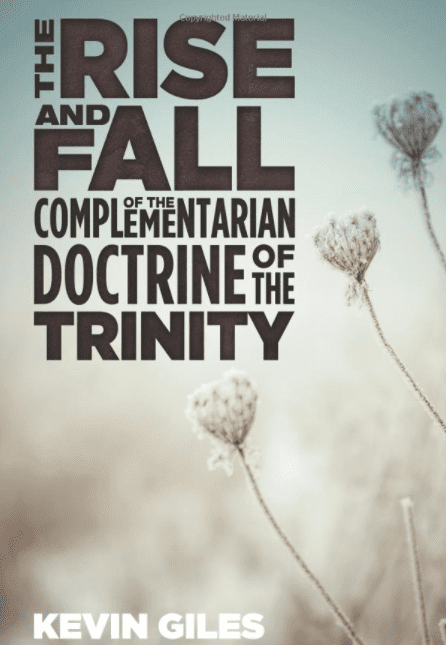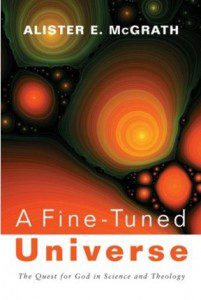Does the first century Jewish context matter when we read and interpret the New Testament?
 This is an important question, and far more subtle than it may originally appear. Most conservative Christians will agree that our understanding of the parables of Jesus is improved when we consider the first century context of the original audience. The picture to the right is from a hill in Galilee. You can just see the lake to the left. I have found that my appreciation for the text has grown significantly through travels in Israel. Many will also agree that our understanding of Paul’s letters is improved when we consider the Jewish, Greek, and Roman context. Well, they will agree if it concerns things like modes of travel and household culture, but perhaps not if the understanding of Judaism undermines “traditional” reformation views of law and grace. The controversy around the New Perspective on Paul comes to mind.
This is an important question, and far more subtle than it may originally appear. Most conservative Christians will agree that our understanding of the parables of Jesus is improved when we consider the first century context of the original audience. The picture to the right is from a hill in Galilee. You can just see the lake to the left. I have found that my appreciation for the text has grown significantly through travels in Israel. Many will also agree that our understanding of Paul’s letters is improved when we consider the Jewish, Greek, and Roman context. Well, they will agree if it concerns things like modes of travel and household culture, but perhaps not if the understanding of Judaism undermines “traditional” reformation views of law and grace. The controversy around the New Perspective on Paul comes to mind.
In Chapter 7 of Adam and the Genome by Dennis Venema and Scot McKnight Scot digs into the story of Adam (and sometimes Eve) as it was told and used in the first century AD. This context may help us understand the ways in which Paul uses the story in his letters. Paul wasn’t speaking from or into a vacuum. There are at least two potential counters to this proposal. The first has to do with the nature of inspiration. If one takes a dictation or near dictation view of inspiration, then the Holy Spirit might have protected Paul from misunderstandings. The second comes from the limits of our knowledge of the first century context.
Personally, I think that Paul was chosen to record important and inspired insights into the nature of God’s work in and through Jesus and the impact of this historical event on the people of God, now the church encompassing both Jew and Gentile, male and female, slave and free on equal ground. Reading the text with an improved understanding of the first century context will help us understand Paul’s (and God’s) message more clearly. But the message speaks directly to the original audience and thus it may use cultural allusions of that time. This may include the way in which Paul uses Adam and compares him with Christ.
Chapter 8 will dig directly into Paul, but chapter 7 “The Variety of Adams and Eves in the Jewish World” lays some important groundwork.
 Except for the genealogy of 1 Chronicles, Adam is essentially ignored in the Old Testament after the first part of Genesis, the Fall of Adam plays no role in the prophets or writings where the focus is on the transgressions of Israel. Adam and the Fall play a more significant role in some of the apocryphal books and other extra biblical literature of the intertestamental and first century eras. Understanding this context may shed important new light on Paul’s use of Adam. We should at least consider the possibility that Paul used a literary Adam familiar to his audience to make a point, rather than the “historical” Adam of some Christian theology. Although I will summarize the background Scot provides, many of the thoughts and conclusions are mine. Read the book to see where Scot falls (and for all the nuanced presentation behind this very brief summary).
Except for the genealogy of 1 Chronicles, Adam is essentially ignored in the Old Testament after the first part of Genesis, the Fall of Adam plays no role in the prophets or writings where the focus is on the transgressions of Israel. Adam and the Fall play a more significant role in some of the apocryphal books and other extra biblical literature of the intertestamental and first century eras. Understanding this context may shed important new light on Paul’s use of Adam. We should at least consider the possibility that Paul used a literary Adam familiar to his audience to make a point, rather than the “historical” Adam of some Christian theology. Although I will summarize the background Scot provides, many of the thoughts and conclusions are mine. Read the book to see where Scot falls (and for all the nuanced presentation behind this very brief summary).
How is Adam portrayed? First, there is the genealogical-literary Adam of Genesis. The starting point in the Jewish literature around the first century was Genesis. The various authors interpreted Adam (exegesis of the text) for a particular purpose in a particular context. Scot looks at Sirach (Ecclesasticus, ca. 200 BC), the Wisdom of Solomon (ca. early first century AD), Philo of Alexandria (mid first century AD), Josephus (late first century AD), 4 Ezra (late first century AD) and 2 Baruch (early second century AD). He also mentions briefly a few relevant fragments from the dead sea scrolls. Each author uses Adam slightly differently and it is unwise to postulate one uniform “Jewish view of Adam.” However, there are some consistent themes. “Adam is the paradigm or prototype or archetype of the choice between the path of obedience and that of disobedience, the path of Torah observance and that of breaking the commandments, the path of Wisdom and Mind and Logos and the path of sensory pleasure and bodily desires. The Adam of the Jewish tradition is depicted very much as the moral Adam.” (p. 169)
The sin of Adam and Eve is often viewed as having consequences for their descendants (Israel in particular) but each generation and each individual is ultimately responsible for his or her own obedience or disobedience. The author of 4 Ezra provides two voices on how to interpret Adam: “Ezra wants to put more blame on Adam and the fallenness of humanity while Uriel emphasizes human will and choice.” (p. 164) This text probably provides the closest analogue to the Christian belief in original sin and guilt, although Scot notes that the we don’t really find this in 4 Ezra “Because the emphasis falls upon the will and action of all humans: “every nation walked after its own will” (3.8)” (p. 165) Even Adam is portrayed as having an evil heart before he was overcome by sin. “The theological debate many know today is already at work in the text of 4 Ezra, and Ezra himself eventually sides with the need for humans to choose obedience – theirs is the responsibility.” (p. 165)
2 Baruch also digs into this question.
But we come back to the original theme: Yes Adam sinned; yes, Adam’s sin impacts all; but each person is responsible for himself or herself. “And those who do not love your Law are justly perishing” (54:14). The text continues:
For although Adam sinned first and has brought death upon all who were not in his own time, yet each of them who has been born from him has prepared himself for the coming torment. And further, each of them has chosen for himself the coming glory. (54:15)
To sum up, for 2 Baruch, each of us is our own Adam, meaning that our own destiny, and the destiny of the world, is in our hands – we can choose to obey God or disobey, but the matter is in our own hands. In this text we have the literary, genealogical Adam who is archetypal of all humanity: here we find Adam as Everyone. (p. 167)
Adam as original sinner rather than origin of sin. Scot summarizes with two nonnegotiable conclusions. First: “the Adam of each of these writings is consciously and constantly the Adam of Genesis, the literary Adam. Instance after instance of interpretation by these authors, from Sirach to 2 Baruch, is an exegesis of the text of Genesis.” (p. 167) There is no independent back story. The text of Genesis is “common cultural knowledge” and this is what is being interpreted. All this means is that there is no independent evidence for Adam.
 The second nonnegotiable is that Adam is used for a purpose in each text. “That is, each interpreted the Adam (and far less often Eve) of Genesis 1-3 for particular reasons and purposes in the context of debates and discussions, with the result that Adam has an interpretative history. No author left Adam in Genesis and read the biblical text simplistically; no author cared about giving Adam a “historical” reading; each author adapted and adjusted the Adam of Genesis.” (p. 168)
The second nonnegotiable is that Adam is used for a purpose in each text. “That is, each interpreted the Adam (and far less often Eve) of Genesis 1-3 for particular reasons and purposes in the context of debates and discussions, with the result that Adam has an interpretative history. No author left Adam in Genesis and read the biblical text simplistically; no author cared about giving Adam a “historical” reading; each author adapted and adjusted the Adam of Genesis.” (p. 168)
What this means for Paul and Christian theology remains to be discussed, but it is important to realize that Paul also was born and educated in a context where Adam and other Old Testament texts were used to make contemporary points without over concern with the original context and meaning. I think this lends important insight into Paul’s context and approach.
Scot concludes his brief survey:
In some of these interpretative traditions Adam is not just the first human being (the literary-genealogical Adam) but also the first sinner, whose sin had an impact on those who followed him. Adam is never simply the first human in a long chain of history; Adam is always the archetype of humans in general or Israel in particular. How did these authors learn to read Adam as an archetype and come to know these things? They did so not by historical investigation or scientific inquiry but simply by knowing Adam as the literary Adam found in their sacred book, the Torah, in Genesis. (p. 169)
So what does this mean for us? Maybe nothing; perhaps a great deal. We’ll see.
Is the understanding of Adam in the first century Jewish world relevant?
If so, what difference does it make?
If you wish to contact me directly you may do so at rjs4mail [at] att.net.
If interested you can subscribe to a full text feed of my posts at Musings on Science and Theology.




 A directionality to evolution, the presence of islands of stability, is not empirical evidence of design – it is a property of the universe, a nature of the evolutionary algorithm. Yet it is entirely consistent with the existence of design and the presence of a designer. Darwin’s theory of evolution may have removed the necessity of a designer, a creator God, to explain the complex structures of biology, yet it does not eliminate the possibility that a creator God exists. John Henry Newman said “I believe in design because I believe in God; not in God because I see design.” and McGrath continues…
A directionality to evolution, the presence of islands of stability, is not empirical evidence of design – it is a property of the universe, a nature of the evolutionary algorithm. Yet it is entirely consistent with the existence of design and the presence of a designer. Darwin’s theory of evolution may have removed the necessity of a designer, a creator God, to explain the complex structures of biology, yet it does not eliminate the possibility that a creator God exists. John Henry Newman said “I believe in design because I believe in God; not in God because I see design.” and McGrath continues…












